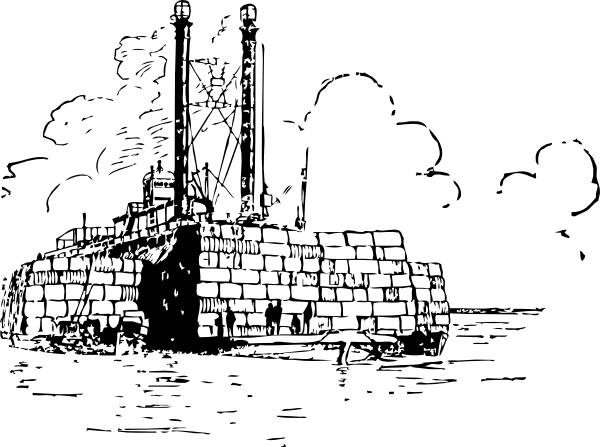During the early years of the Republic of Texas, one of President Jackson's major objectives was making real the tenuous claims to California Texas had made. The overseas route was lengthy, having to circumnavigate the entirety of South America. The main overland route, the
Old Spanish Trail, was circuitous and felt to be vulnerable to snow in the winter. Jackson's government sought a way directly through the desert to the Pacific. President Jackson sent one of his staunchest loyalists and famous explorer,
William Henry Ashley, to find a route as straight as possible from Albuquerque to the Pacific. Ashley was successful, blazing a
route almost due west, with water sources no more than 20 miles apart! After crossing the Colorado at
the Needles, he was able to link up with the
Mojave Road, a native route that had spurs to both the Central Valley of California and down to Presidio de Santa Barbara on the Pacific Ocean. On reaching Santa Barbara, Ashley's party was held by the Mexican faction holding the region, but was able to convince them that they were American traders who had crossed the continent by the Old Spanish Trail. Ashley and his party were treated as heroes on their return to Texas. Ironically, it was the discovery of a more direct route to California that later made possible the sale of northern New Mexico and California to the Americans under the Brown Presidency, as before this the sale would have severed the only known routes from Texas to the Pacific.


